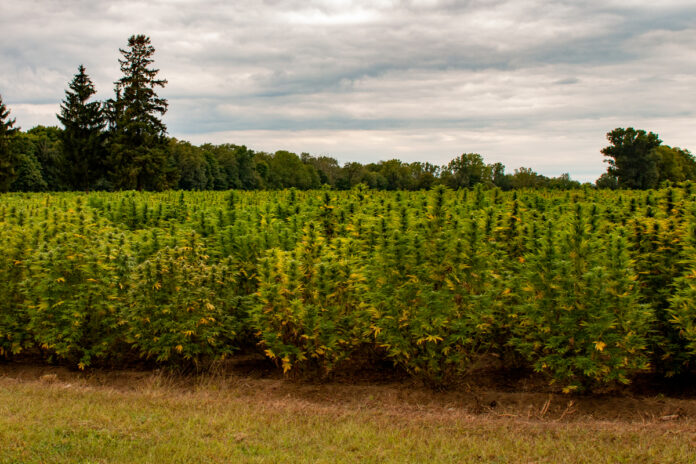PORTLAND, Maine – The state of Maine has typically been known for lobster, blueberries, and lighthouses. Apparently, medicinal cannabis is joining this list as Maine’s most valuable crop.
According to reports, Maine’s medicinal cannabis sales exceeded $220 million from January through October 2020. Sales are expected to reach $266 million by the end of the year. In 2019, sales of potatoes in the state totaled $184.1 million while milk and wild blueberries totaled $123.6 million and $26 million respectively.
In many ways, the cannabis industry’s rapid growth in Maine is not surprising—as it has in many other states, cannabis has become a valued commodity throughout the COVID-19 pandemic. In some instances, cannabis sales have exceeded 2019 pre-coronavirus numbers.
Maine only began tracking medicinal cannabis sales last year. In 2019, the state recorded approximately $100 million in sales. This year’s predicted number of $266 million represents a huge leap in the industry’s growth, a leap that Tom Sullivan, co-chief executive officer at Cannapreneur Partners, believes will help provide Maine with critical dollars as the ongoing pandemic continues to disrupt the state’s economy.
“The recent boom in Maine’s cannabis sales this year proves that the plant is the state’s most valuable crop,” Sullivan told mg. “The market also promotes new businesses, creates new jobs, and generates significant tax dollars for state coffers—something crucial during the ongoing pandemic. Demand has the potential to stay strong in a state with historically high tourism and low-end operating costs, which could lead to more affordable products, particularly when compared to surrounding states.”
Maine’s distribution network for medicinal cannabis includes only eight dispensaries statewide but relies heavily on a network of about 3,000 licensed caregivers. These caregivers can grow and provide patients with medicinal-grade cannabis. Maine has approximately 65,000 registered cannabis patients, a number that is higher than nearby Massachusetts (59,288 patients) despite the Bay State’s significantly higher population. Massachusetts does have a robust recreational market which could suppress the number of patients who register.
Like Massachusetts, Maine has also legalized recreational cannabis sales, but this facet of the state’s industry is still in a nascent stage. Sales officially started in October of this year and generated $1.4 million in revenue compared to $22 million generated by medicinal sales.
Sullivan believes Maine’s cannabis industry may be on the right track for further growth.
“We maintain the belief that if Maine’s lawmakers continue to educate themselves on the issues, they will recognize that a more robust, comprehensive cannabis program will be beneficial to the state, not only in terms of providing patients with the care and quality they deserve but also in terms of job growth, business development, and generating significant tax dollars,” Sullivan said. “This, alongside imperative social justice initiatives, would open up Maine to a flood of smart investments and give the state the ability to drive meaningful change.”










